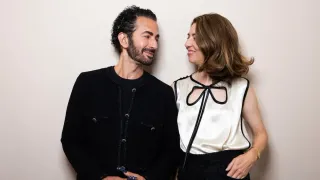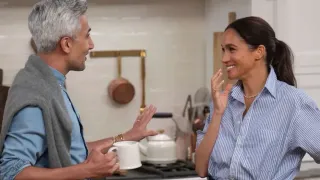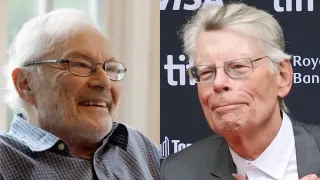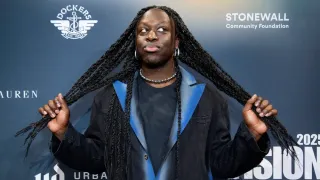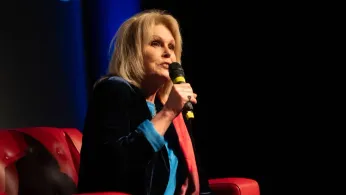
6 hours ago
Joanna Lumley Reignites Debate: Should Only Queer Actors Play Queer Roles?
READ TIME: 3 MIN.
The conversation around who should portray queer characters in television and film returned to the spotlight after Joanna Lumley, renowned for her role as Patsy Stone in “Absolutely Fabulous,” voiced her concerns about the growing expectation that only queer actors should play queer roles. Lumley argued that limiting actors in this way risks undermining the very foundation of acting, stating, “If we can’t act things, what’s the point of actors?” She further lamented that the profession could become “boring beyond disbelief” if performers were restricted to playing only those characters whose identities and experiences mirror their own .
Lumley’s remarks came in response to recent casting controversies, including criticism of straight actors being cast in high-profile queer roles and debates around the casting of Jenna Ortega in the Netflix series “Wednesday.” Her statements have quickly circulated within both mainstream and LGBTQ+ media, prompting renewed discussion about representation, authenticity, and the evolving expectations placed on the entertainment industry .
The demand for authentic queer representation has been a core issue within LGBTQ+ media advocacy for decades. Historically, queer roles have often been given to cisgender, heterosexual performers, while openly LGBTQ+ actors have faced discrimination, typecasting, or outright exclusion from mainstream projects. LGBTQ+ advocacy organizations have long highlighted the impact of this disparity, noting that authentic casting not only provides more accurate representation but also creates vital employment opportunities for queer performers who have traditionally been marginalized in the industry .
GLAAD, a leading LGBTQ+ media advocacy group, has consistently argued that casting openly LGBTQ+ performers in queer roles is crucial for both on-screen authenticity and off-screen equity. In its most recent “Where We Are on TV” report, GLAAD noted that while positive LGBTQ+ representation has increased, opportunities for queer actors—especially transgender and nonbinary performers—remain disproportionately limited compared to their cisgender and heterosexual peers .
Reactions to Lumley’s comments are divided within LGBTQ+ circles. Some industry professionals and advocates agree that acting is fundamentally about transformation and that limiting roles by identity could restrict both artistic expression and the actor’s craft. Others counter that, given the persistent underrepresentation and stereotyping of queer people in media, prioritizing openly LGBTQ+ performers for queer roles is not just desirable but necessary for social progress .
Openly queer actors such as Russell Tovey and Laverne Cox have previously spoken about the barriers they faced in accessing a full range of roles, with Cox noting that “the industry often wants trans stories but not necessarily trans actors to tell them” . At the same time, some LGBTQ+ voices caution against “identity policing,” warning that rigid rules could backfire by deterring engagement with queer stories from broader creative communities .
The broader entertainment industry is also divided on the issue. Some casting directors and producers argue that the best actor for a role should be chosen regardless of identity, so long as the performance is respectful and accurate. Others have introduced formal guidelines or targets for LGBTQ+ inclusion, seeking to address the historic exclusion and ensure that queer stories are told by those with lived experience .
Several recent productions have been praised for their inclusive casting practices. For example, the FX series “Pose” was lauded for employing a majority transgender cast and creative team, setting a new industry standard for authentic representation . Meanwhile, the ongoing debate has prompted calls for more nuanced solutions, such as ensuring meaningful consultation with LGBTQ+ communities on queer narratives and balancing artistic freedom with a commitment to equity and inclusion .
Joanna Lumley’s remarks have served as a flashpoint in a much larger and ongoing debate about the ethics and responsibilities of casting in queer roles. While some maintain that acting should transcend personal identity, others emphasize the importance of redressing historical exclusions and ensuring that queer people are empowered to tell their own stories on screen. As the entertainment industry continues to grapple with these questions, one thing remains clear: meaningful, equitable representation of LGBTQ+ lives is not just an artistic issue, but a matter of social justice and community visibility .
